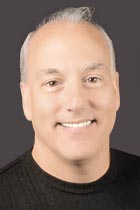
I recently attended something called the Landmark Forum. Suffice to say it was an intensive three days of self-introspection. The net-net. Things in life happen. We then create a story around it. The story then defines our reality. And it limits our possibilities.
Give you an example. I had a story that whenever my sister calls she talks too much, goes on about irrelevant information, and extends phone calls way further than they should go. As a result of that, I tune her out, damaging our relationship. In fact my fine art of tuning out got so bad that I missed 80 percent of the details surrounding her trip to visit us at Thanksgiving.
I realized that at some point we probably did have a few conversations where that actually happened. But then I made it in my mind that every conversation would be that way. That was my story.
When I apologized to her, I made a commitment to start fresh and engage in our conversations. I took some deliberate steps to make sure I was a better listener. No talking to her when also on the computer or while driving or playing on my iPad. Now when she calls, I pay attention, listen, ask questions and as a result our relationship has deepened. To do that I had to break a cycle. And by losing my story, I opened up room for new possibilities.
We all show up at work with baggage. We have stories of why things are the way they are and they affect all aspects of human relationships. So physicians have a story of being entitled. Staff thinks they are not empowered. Patients feel they are victims.
Customers behave the same way. In his Marketing Profs article, Customer Experiences and the Theory of Relativity, Howard Lax, PhD says that the memory of an experience trumps the actual experience. That what we remember, however accurate or inaccurate, is more important than what “actually” happened. The memory of the experience becomes reality.
He goes on to say that we evaluate the world through a lens of comparisons to meaningful reference points. An experience is better or worse than expected, more or less than before, different from or the same as promised, best or worst in class.
Context, he says, defines the parameters of our thinking and sets our expectations. That is why it is so hard to break out of context and why only a handful of visionaries can break through the boundaries and imagine and build things never before envisioned. That is why Steve Jobs famously did little market research.
In an ideal world, we would work on losing our story, this holding on to the past that defines our future. Instead, we would approach each situation in the moment and open to the possibilities.
For example, a physician speaking empathetically to a patient is inauthentic if at the same time in his or her head a little internal voice is suggesting that the patient put themselves in this position. The following is a verbatim quote that a physician left on another blog I wrote about patient experience.
“In the end, you reap what you sow, and it is not doctors’ responsibility to heal society. There are a lot of other people with jobs to do, and I do not see they or you coming to my house to work for free to pay off their meager $100K hospital bill (to save their life) $1K of which I get, almost all of which goes to the bank.”
When this physician looks at a patient, he has a story already made up. Patients are irresponsible freeloaders. Don’t have to wonder how that affects the care provided do you? What if the same physician came in the room free of his/her story? My guess is that real care and empathy would be rendered.
Short of losing our story, we must realize most everyone lives in the world of context. Whether it’s an administrator working with a physician or a marketer with a consumer, we need to be aware of what the context is so that we can relate to people from a common language. Perhaps if we first work on how we communicate and relate to each other we can move on to losing our stories. Because by doing the former (communicating better), we will learn new things about each other that will show the irrelevance of our stories.
Imagine starting a new year from a place of possibility. It could be exciting and it could separate winning organizations from losing ones.
Anthony Cirillo, FACHE, ABC, president of Fast Forward Consulting, is a speaker, healthcare expert, elder advocate and blogger. He works with long-term care facilities in the area of resident experience and strategic marketing.



